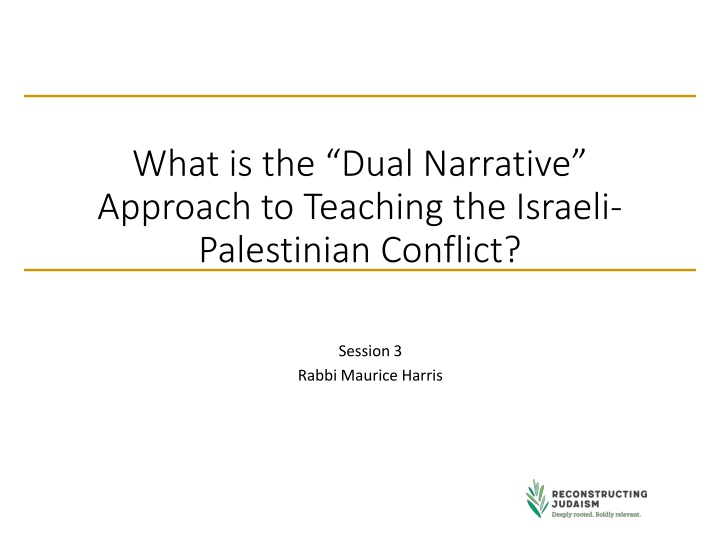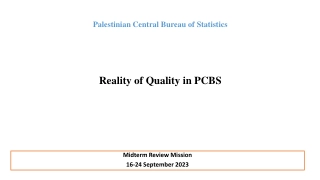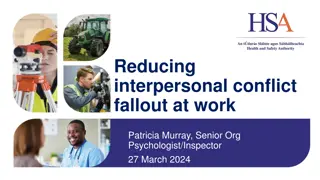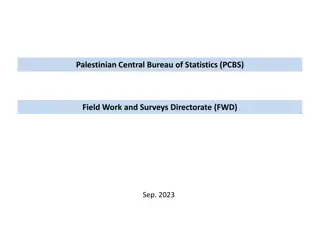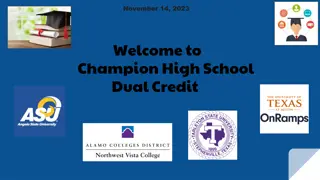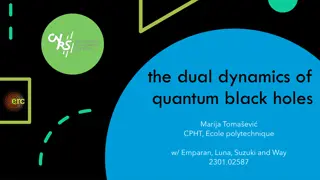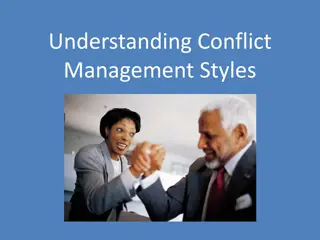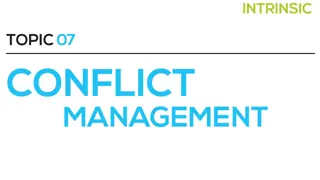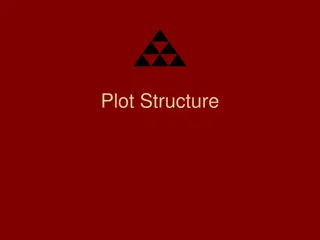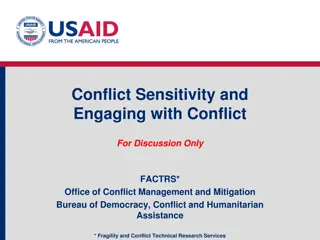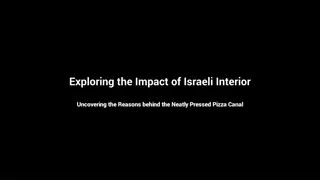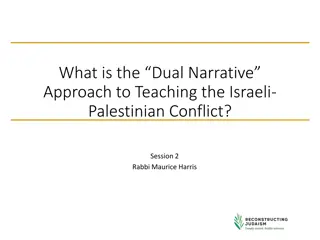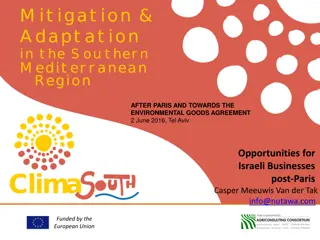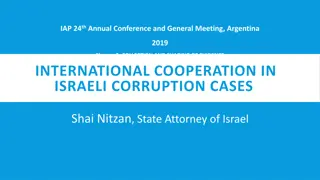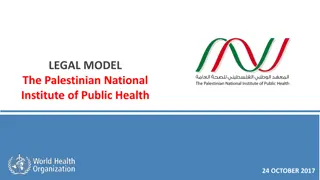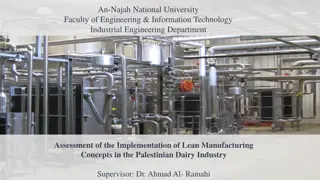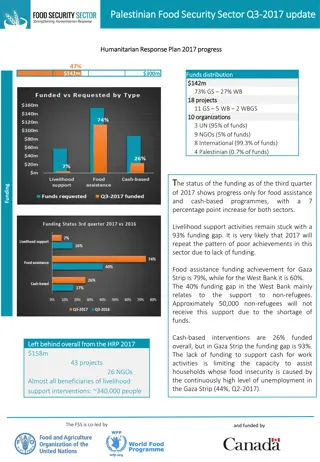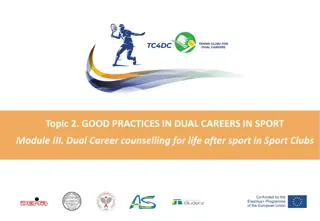Dual Narrative Approach in Israeli-Palestinian Conflict
The session with Rabbi Maurice Harris delves into the Dual Narrative Approach to teaching the Israeli-Palestinian conflict, emphasizing safety considerations and potential power dynamics. Opening prayers set the tone for discussions, while exploring programs that merge political, moral, spiritual, and practical aspects foster hope for resolution. The session also highlights considerations for hosting events in a religious setting, focusing on civility, respect, and room for diverse perspectives.
Download Presentation

Please find below an Image/Link to download the presentation.
The content on the website is provided AS IS for your information and personal use only. It may not be sold, licensed, or shared on other websites without obtaining consent from the author.If you encounter any issues during the download, it is possible that the publisher has removed the file from their server.
You are allowed to download the files provided on this website for personal or commercial use, subject to the condition that they are used lawfully. All files are the property of their respective owners.
The content on the website is provided AS IS for your information and personal use only. It may not be sold, licensed, or shared on other websites without obtaining consent from the author.
E N D
Presentation Transcript
What is the Dual Narrative Approach to Teaching the Israeli- Palestinian Conflict? Session 3 Rabbi Maurice Harris
Todays Session in a Nutshell 1. Opening: Two opening prayers from two different sources, and review of goals. 2. What brought you here? (2 people share) 3. Your thoughts on the reading 4. Safety & Risk: Structural Choices for Planning Dual-Narrative Events 5. Problem with Dual-Narrative: Power dynamics can be obscured. 2
Opening Kavannah 1 Tefilat HaDerekh By Rabbi David Seidenberg (adapted text) May the holy desire come from You, Eternal One, our Source and our ancestors' Source, that You will lead us toward peace and make our every step be a step toward peace and our path be a path of peace. May You help us reach the true target of our desire: life, joy, and peace. Rescue us from all enmity and ambush and theft and predation, from all impulses to harm that confront us on this path, and from any dangerous complications that may arise from the passions that come into the world. Bless our actions and handiwork and grant us grace, love, and compassion in Your eyes and in the eyes of all who behold us, for You are the one who is listening to hear the prayer of every mouth of every creature. Blessed be You who listens for prayer. https://ritualwell.org/ritual/tefilat-haderekh 3
Opening Kavannah 2 https://daysofawe.net/shebotzodkim.htm 4
181- partition 194- refugees 273- admission with 194 242 & 338- land 4 peace
What kinds of programs are you interested in offering?
Political Moral Spiritual Practical Hopeful
For events in a shul 1. Advanced registrations plus sign-off on civility covenant 2. To complete registration, must respond to a few questions (see sample registration questions below) 3. Opening / closing ritual moment
Code of Civility Respectful disagreement Respectful questioning For people who tend to like to share a lot, making sure that you leave room for others to participate Refraining from language that is bigoted or derogatory Assuming the best intentions, not the worst, if someone does say something that causes pain or offense ( ouch )
Code of Civility Allowing the use of politicized language while holding one another to a mutually agreed expectation to avoid bigoted or derogatory language. (This can be tricky.) This is a closed course no visitors or guests without the advance permission of the instructor.
Registration questions? In order to help the facilitator create a constructive learning environment for everyone, please respond to the following questions. Your responses will not be shared with anyone else in the class. 1. What hopes do you bring to this class? 2. What concerns or worries do you bring to this class? 3. What, if anything, do you want to know about the instructor? 4. Please tell us a little about your experiences and perspectives on this subject?
For interfaith or public events 1. Greeters hand out civility pledge notecards. 2. Best events aren t debates they include speakers who give voice to both narratives, which can happen in various ways. 3. Scripted and mutually previewed & approved opening / closing ritual moment by clergy of multiple faiths. 4. Questions to the speakers must be written on notecards and handed to volunteers. 5. Publicity choices matter.
Facilitator self-identification I m a progressive rabbi with ties to the Israeli peace movement. I have close family in Israel and partly grew up there. I ve formed important friendships with Palestinians living in the West Bank and have come to care deeply about them. So on a gut level, Israel feels like family to me, and Palestinians feel like people I have deep feelings for. I respect, admire, and get frustrated by them both.
Things that can go wrong 1. There are groups that oppose any program based on a dual narrative approach, and some of them believe that it is their duty to redirect the discussion to their objection to the assumptions upon which the event is based. 2. Grandstanding & individuals taking up too much airspace 3. Getting stuck over language and terminology 4. Getting blindsided in public
Suggestions Your Advice / Suggestions:
Next Steps Please read the PDF you ll receive with a short portion of this journal article by Ned Lazarus. If you have questions or thoughts to share, please email them to Maurice at mharris@rrc.edu and he ll weave them into our next session. 17
